The term “test tube baby” has gained significant recognition as a groundbreaking advancement in reproductive technology. This process, known as in vitro fertilization (IVF), involves fertilizing an egg with sperm in a controlled laboratory environment. The resulting embryo is then carefully placed into the woman’s uterus, where it can develop naturally into a healthy pregnancy. For couples facing infertility challenges, IVF offers a promising solution, but it’s essential to understand the complexities involved.
This guide provides a comprehensive overview of IVF, focusing on critical aspects like success rates, potential side effects, and the financial investment required. By exploring these factors, we aim to offer a balanced perspective that helps aspiring parents make informed decisions on their journey to parenthood. Whether you're just beginning to consider IVF or are already in the process, this resource will equip you with the knowledge needed to navigate the path ahead.
What is a Test Tube Baby?
A test tube baby is a term that refers to a baby conceived through in vitro fertilization (IVF), a process in which an egg is fertilized by sperm outside the body, typically in a laboratory dish. The term "test tube baby" is a bit of a misnomer since the actual fertilization occurs in a petri dish, not a test tube. After fertilization, the embryo is transferred to the woman's uterus, where it can develop into a baby.
The Process of Test Tube baby
- Ovarian Stimulation: The first step involves stimulating a woman's ovaries to produce multiple eggs using hormone injections. This increases the chances of success as multiple eggs can be retrieved.
- Egg Retrieval: Once the eggs have matured, they are retrieved through a minor surgical procedure called transvaginal ultrasound aspiration.
- Fertilization: Fertilization may occur naturally or through a process called intracytoplasmic sperm injection (ICSI), where a single sperm is injected directly into an egg.
- Embryo Culture: After fertilization, the embryos are cultured in a controlled environment for several days, typically up to five days, until they reach the blastocyst stage.
- Embryo Transfer: One or more healthy embryos are selected and transferred to the woman's uterus. Any remaining viable embryos may be frozen for future use.
- Pregnancy Test: About two weeks after the embryo transfer, a blood test is conducted to determine if the procedure has resulted in pregnancy.
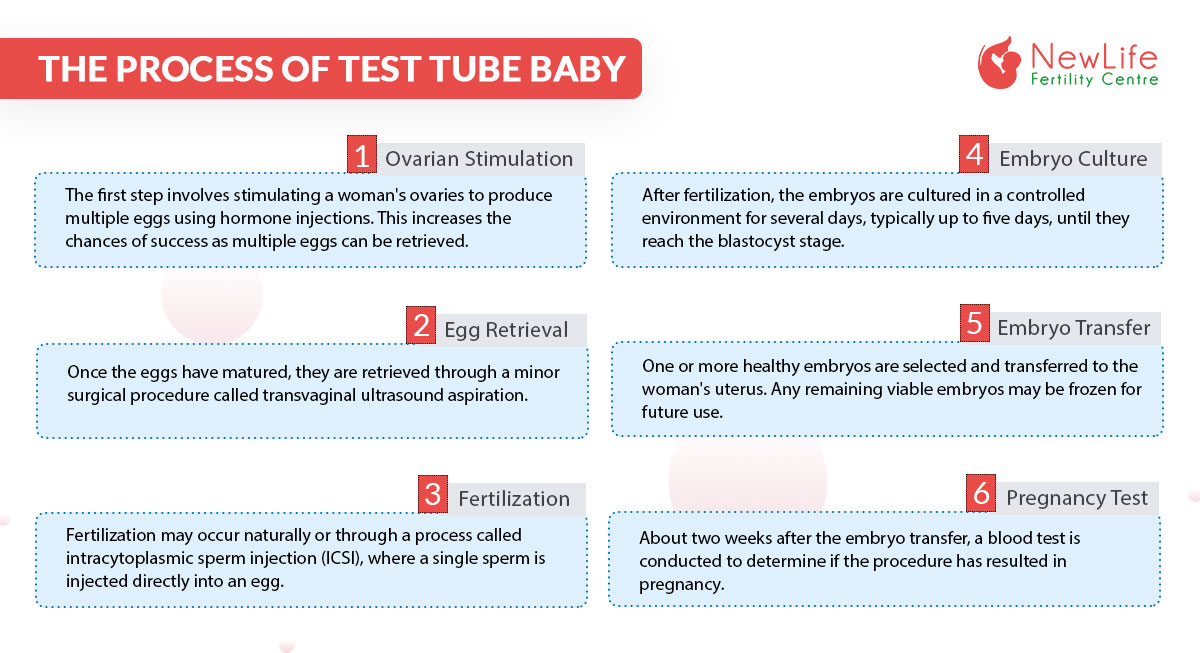
Who is a Candidate for Test Tube Baby Treatment?
IVF and the creation of a test tube baby can be an option for various individuals and couples experiencing infertility issues. Some of the common reasons why one might consider this procedure include:
Infertility Due to Blocked or Damaged Fallopian Tubes
Male Infertility Issues
Unexplained Infertility

Age-Related Infertility
Genetic Disorders
Failed Fertility Treatments
The Success Rates of Test Tube Baby Procedures
Success rates for in vitro fertilization (IVF), often referred to as the test tube baby procedure, can vary widely depending on several key factors, including the age of the woman, the underlying cause of infertility, and the quality of the embryos. On average, the success rate for achieving a live birth through IVF is approximately 20-35% per cycle. However, this rate tends to decrease as the woman’s age increases, making age one of the most critical factors in determining the likelihood of success.
Factors Affecting Success Rates
Age:
- Women Under 35: Women in this age group typically have the highest success rates with IVF, often between 40-50% per cycle. This is due to the generally better quality and quantity of eggs.
- Women Over 40: The success rate drops significantly after age 40, with only about 5-10% per cycle. This decline is due to diminished ovarian reserve and reduced egg quality as women age.
Embryo Quality:
- High-quality embryos, assessed through advanced grading techniques, are more likely to implant successfully in the uterus, leading to a higher chance of pregnancy. The use of Preimplantation Genetic Testing (PGT) can help identify the best embryos, improving the odds of success.
Sperm Quality:
- The health and viability of the sperm are crucial for successful fertilization and subsequent embryo development. Poor sperm quality can lead to lower fertilization rates and may affect the genetic quality of the embryos.
Uterine Health:
- The condition of the uterus, including the thickness and receptivity of the endometrial lining, plays a vital role in the embryo's ability to implant and grow. Issues such as uterine fibroids or scarring can negatively impact implantation.
Lifestyle Factors:
- Smoking: Significantly reduces IVF success rates and can lead to lower ovarian reserve.
- Alcohol Consumption: Excessive alcohol intake can impair fertility in both men and women.
- Obesity: Increases the risk of complications and reduces the likelihood of a successful IVF cycle.
- Stress: High levels of stress have been shown to negatively impact IVF outcomes.
Success Rate Overview: A Quick Reference Table
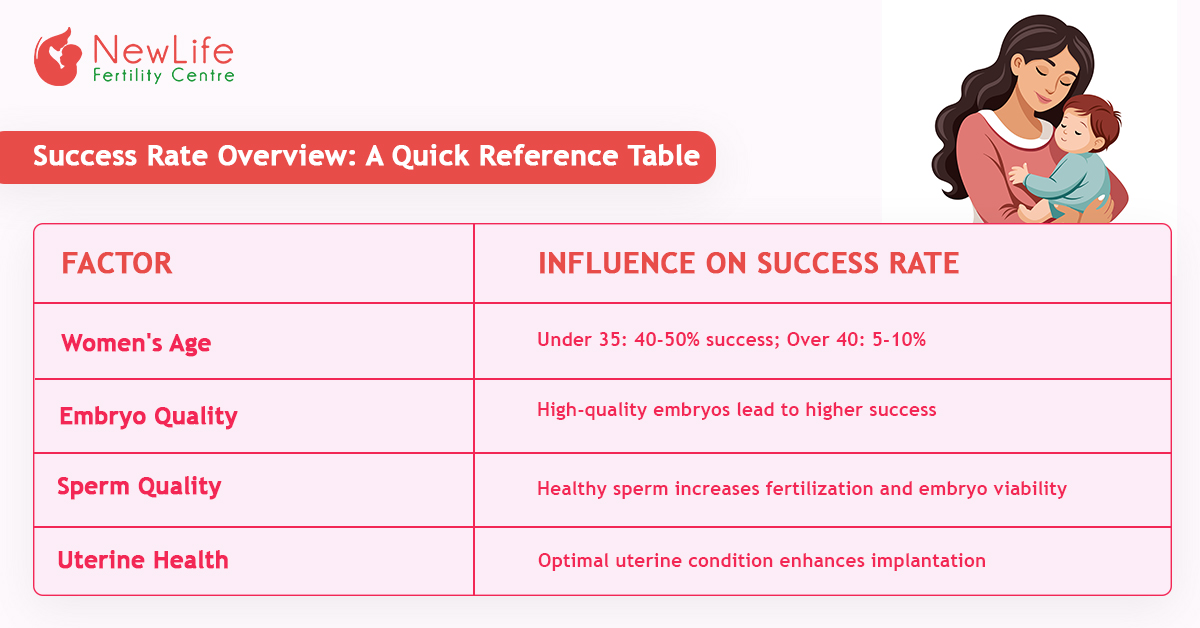
The Emotional and Psychological Impact of IVF
Undergoing IVF can be a highly emotional experience, with the potential for both joy and disappointment. The emotional rollercoaster can be challenging, but understanding what to expect can help individuals and couples navigate the process more effectively.
Coping with Stress and Anxiety
The process of IVF often comes with a significant amount of stress, including worries about the financial cost, physical discomfort, and the emotional toll of the treatment. It's essential to have a support system in place, whether it's family, friends, or a counselor who specializes in fertility issues.
Managing Expectations
Setting realistic expectations is critical. While many couples achieve success with IVF, it may take multiple cycles, and there's always a chance that it may not result in pregnancy. Couples should prepare for all possible outcomes and have a plan for how they will cope if the treatment is unsuccessful.
Dealing with the Financial Burden
IVF can be expensive, and the costs can add up quickly, especially if multiple cycles are needed. It's important to explore all financial options, including insurance coverage, financing plans, and grants for fertility treatments. Understanding the costs upfront can help reduce financial stress during the process.
The Costs of Test Tube Baby Treatment in India
The cost of In-Vitro Fertilization (IVF), often referred to as the test tube baby process, can vary significantly depending on various factors, including the clinic's location, the specific treatments required, and additional procedures that may be necessary. On average, a single IVF cycle in India ranges from ₹1,00,000 to ₹3,00,000. This estimate does not include the cost of medications or additional procedures such as Intracytoplasmic Sperm Injection (ICSI) or Preimplantation Genetic Testing (PGT).
Detailed Breakdown of IVF Costs
1. Consultations and Initial Testing
2. Ovarian Stimulation Medications
Medications are required to stimulate the ovaries to produce multiple eggs. The cost of these medications can vary widely depending on the specific drugs used and the length of treatment. On average, these medications cost between ₹20,000 and ₹60,000 per cycle.
3. Egg Retrieval and Sperm Collection
4. Fertilization and Embryo Culture
The process of fertilizing the eggs and culturing the embryos in the laboratory is another significant cost. This part of the procedure usually costs between ₹25,000 and ₹50,000.
5. Embryo Transfer
The final step in the IVF process is the transfer of the embryo(s) to the woman’s uterus. This procedure typically costs between ₹10,000 and ₹30,000.
6. Additional Procedures
Cost Breakdown of Test Tube Baby (IVF) Treatment in India
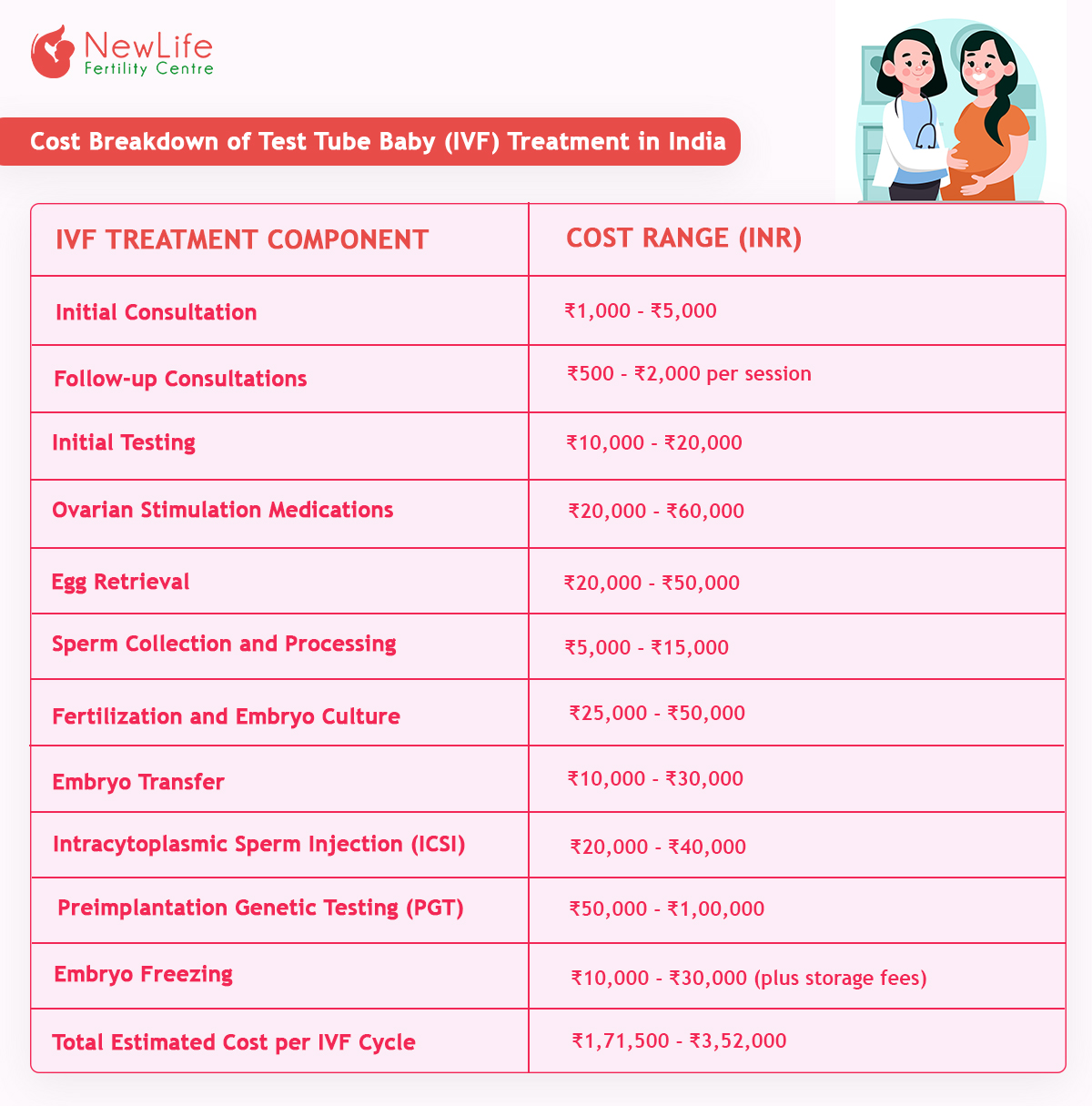
Understanding the Potential Side Effects of Test Tube Baby Procedures
When exploring the option of having a test tube baby, or undergoing in vitro fertilization (IVF), it's essential to be mindful of the potential side effects and risks associated with the procedure. Although IVF is generally a safe and effective method of achieving pregnancy, it is not without its challenges. Being well-informed about these can help you make the best decisions and navigate the process more smoothly.
Common IVF Side Effects:
Long-Term Health Considerations
While immediate side effects are more frequently discussed, there are also long-term health considerations to keep in mind:
Managing the Side Effects of Test Tube Baby Treatment
While the side effects of IVF can be challenging, there are effective ways to manage them and enhance your overall experience with the treatment. Here's how you can navigate the potential side effects and reduce their impact:
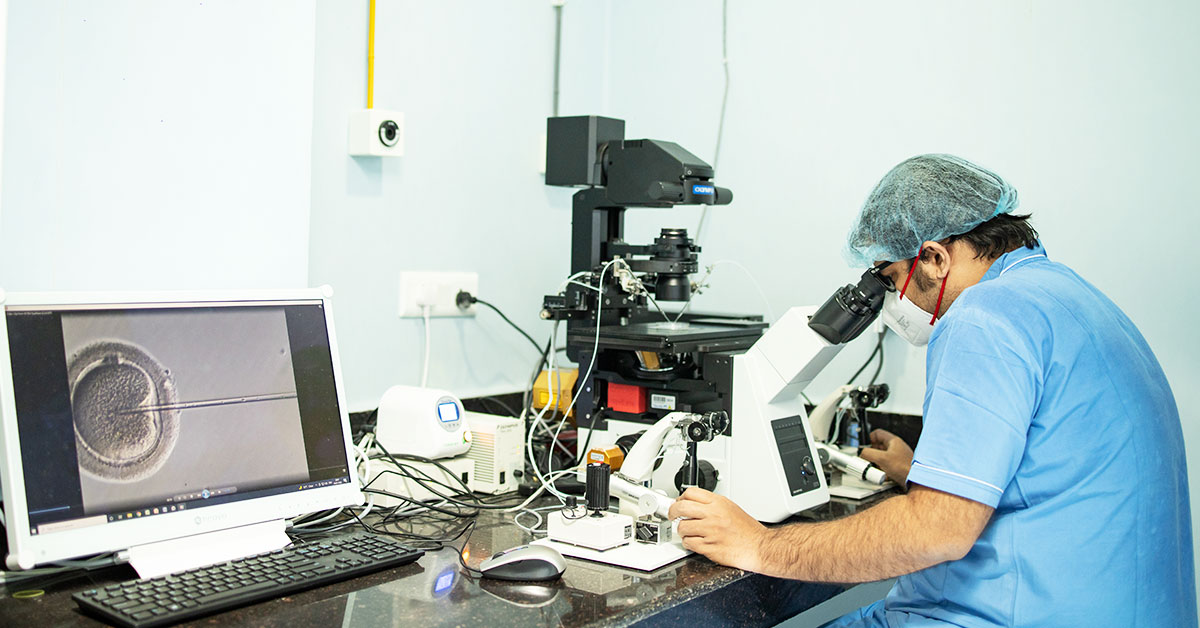
Practical Tips for Managing IVF Side Effects:
The Future of Test Tube Baby Technology
As medical science advances, the techniques and technologies used in IVF continue to improve, increasing success rates and making the process more accessible to a broader range of people.
Innovations in IVF
Ethical Considerations
As technology advances, ethical questions surrounding IVF and related procedures become increasingly important. Issues such as genetic screening, embryo selection, and the potential for "designer babies" are at the forefront of ethical discussions in the field of reproductive medicine.
Conclusion
The concept of a test tube baby represents a remarkable achievement in medical science, offering hope to countless couples struggling with infertility. While the process can be complex, costly, and emotionally challenging, the rewards of successful treatment can be life-changing. As technology continues to evolve, the future of IVF and assisted reproductive technologies holds even greater promise for those dreaming of starting or expanding their families. Whether you're considering IVF for yourself or simply want to understand more about this incredible process, being informed is the first step toward making the best decisions for your reproductive health.

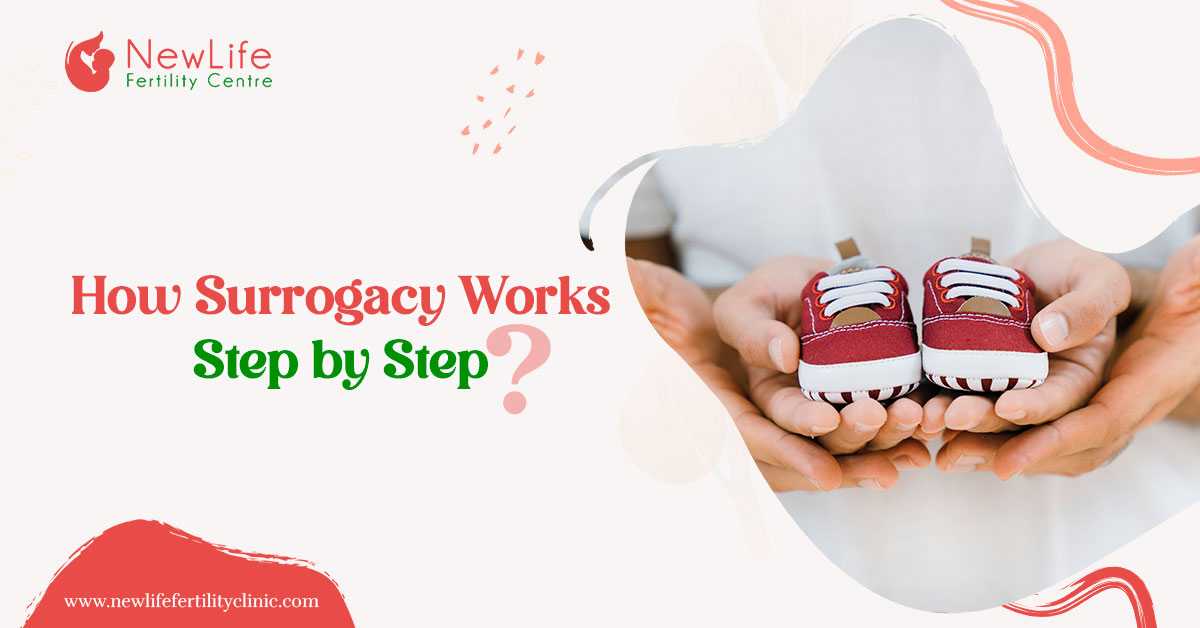
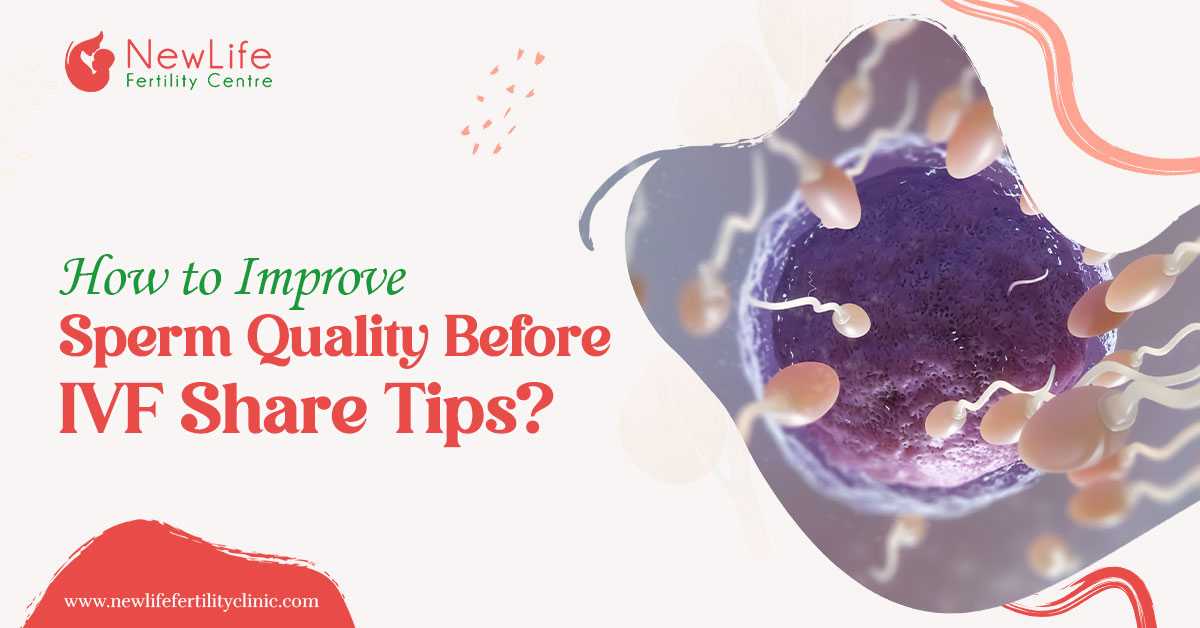
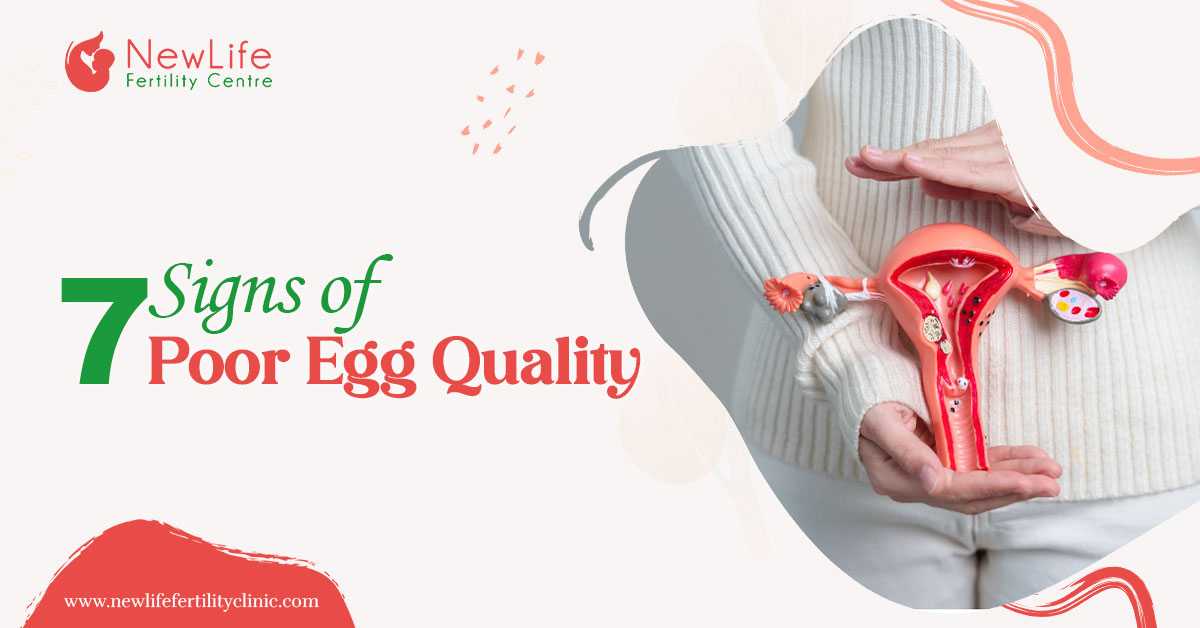
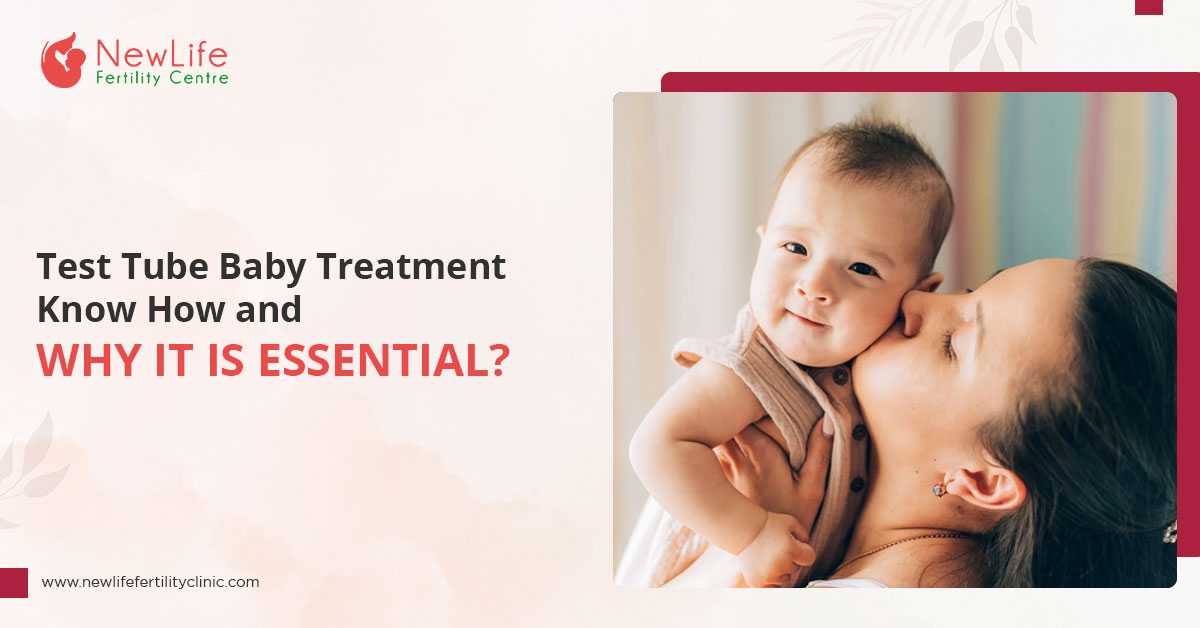
.jpg)



